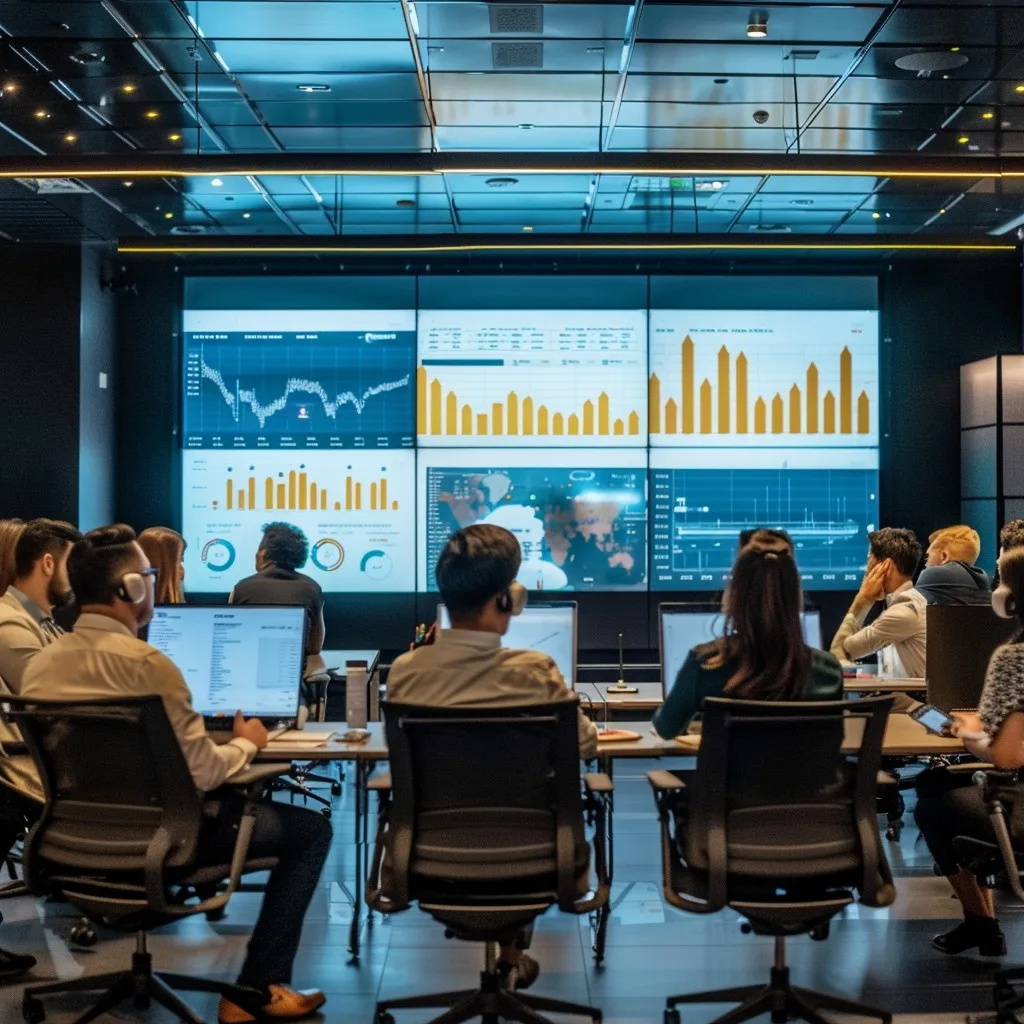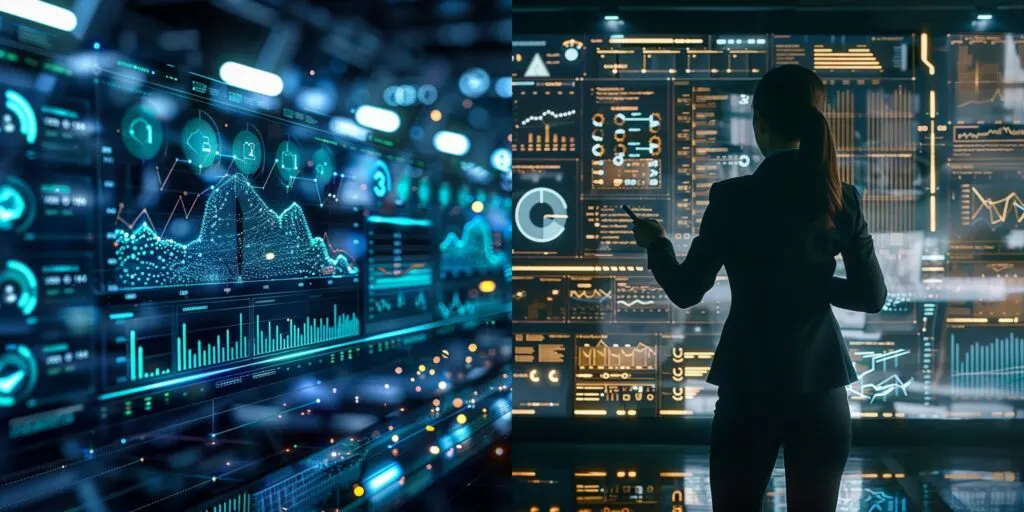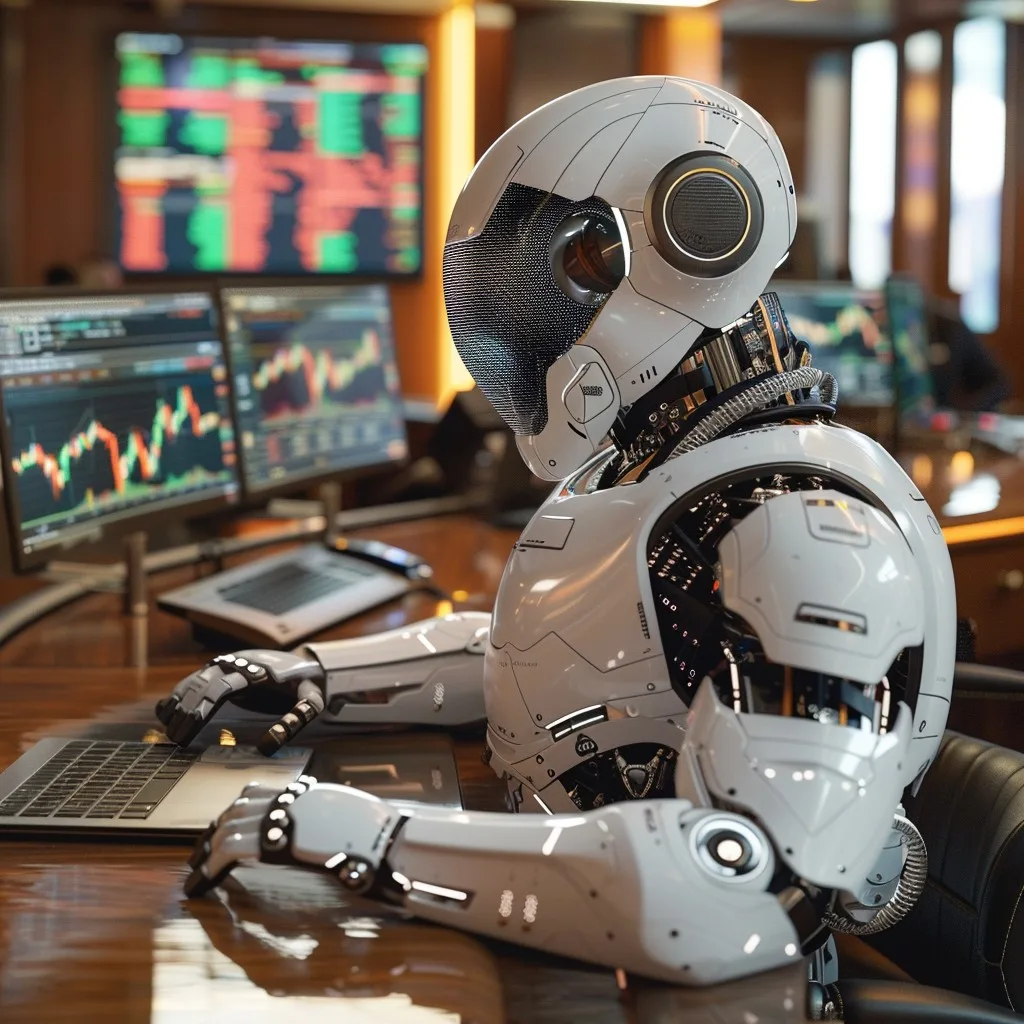Traders in the Modern World: Navigating Complex Challenges in Electronic TradingWhat are the challenges for traders in the modern world? Today’s electronic trading environment presents a complex landscape filled with hurdles beyond just access to information and market volatility.Traders must navigate psychological pressures such as stress and decision fatigue, master intricate risk management techniques to protect their capital, and continuously invest in education to keep up with fast-evolving technologies and strategies.Additionally, ethical concerns like market manipulation and regulatory compliance increasingly shape trading practices, while evolving market structures—characterized by high-frequency trading, algorithmic strategies, and fragmented liquidity—demand constant adaptation.Together, these factors create a multifaceted challenge that traders, especially retail participants, must overcome to remain competitive and profitable.

Traders in the modern world
1. Psychological Pressures and Emotional Challenges in Trading: Key Challenges for Traders in the Modern World
Trading is as much a psychological game as it is a numbers game. The modern trader faces intense emotional challenges exacerbated by the rapid pace and high stakes of electronic markets. The challenges for traders in the modern world include managing stress, overcoming fear and greed, and maintaining discipline amidst constant market fluctuations.
These psychological pressures, combined with the sheer volume of data and speed of decision-making required, make trading today uniquely demanding.
The Impact of Stress and Anxiety
The constant monitoring of markets, rapid decision-making, and financial risk generate stress and anxiety. Stress impairs judgment and may lead to impulsive or emotionally-driven decisions that are detrimental to trading performance.
Fear and Greed: The Twin Enemies
Two powerful emotions dominate trading behavior: fear and greed. Fear can prevent traders from entering good opportunities or force premature exits, while greed may encourage excessive risk-taking and overtrading. Balancing these emotions requires discipline and self-awareness.
Overcoming Emotional Biases
Common cognitive biases such as confirmation bias, loss aversion, and the sunk cost fallacy can cloud objective analysis. Traders need techniques such as journaling trades, setting strict rules, and mindfulness to mitigate emotional interference.

Lack of Access to Real Information
2. The Importance of Continuous Education and Skill Development
In today’s complex markets, success is rarely accidental. Continuous education is essential to keep up with evolving market conditions, new trading tools, and emerging strategies.
The Growing Complexity of Trading Instruments
Markets today offer an extensive range of instruments — from traditional stocks and bonds to derivatives, cryptocurrencies, and exchange-traded funds (ETFs). Each requires different knowledge sets and risk assessments.
The Role of Formal and Informal Education
Many traders benefit from formal courses, certifications, and mentorships. Others learn through reading, webinars, simulation platforms, and community forums. However, traders must be cautious about the credibility of sources to avoid misinformation.
Lifelong Learning as a Competitive Edge
Technology and regulations change rapidly. Traders committed to lifelong learning adapt more quickly, innovate their strategies, and identify new opportunities before others.

3. Risk Management Complexities in Modern Trading
Risk management is critical but more complicated than ever in the fast-paced electronic environment.
Understanding Different Types of Risk
Traders face market risk, liquidity risk, operational risk, and counterparty risk. For example, during periods of extreme volatility, liquidity can dry up suddenly, making it difficult to exit positions at expected prices.
The Use of Stop Losses and Position Sizing
Smart traders use stop-loss orders to limit losses and employ position sizing rules to manage exposure. However, automated stop losses can sometimes trigger prematurely in volatile markets, leading to frustration.
Diversification and Hedging
Diversification across asset classes and timeframes reduces risk, but requires knowledge of correlation and market dynamics. Some traders use hedging instruments like options or futures, but these add complexity and costs.
4. Ethical Considerations and Market Manipulation Risks
The modern trading world is not immune to unethical practices and market manipulation schemes.
Recognizing Manipulative Practices
Traders must be wary of “pump and dump” schemes, spoofing, layering, and fake news intended to manipulate prices for the benefit of insiders.
The Role of Regulators
Regulators continuously update rules to combat manipulation, but enforcement varies by jurisdiction. Traders should report suspicious activities and trade only on regulated platforms.
Maintaining Ethical Trading Practices
Ethical behavior preserves market integrity and traders’ reputations. Avoiding shortcuts, scams, or insider information is essential for sustainable success.
5. Market Microstructure and Changing Trading Venues
Modern markets operate on diverse venues with different rules and structures, adding complexity to trade execution.
Fragmented Markets and Multiple Trading Venues
Stocks and other assets often trade on multiple exchanges and alternative trading systems (dark pools), each with different liquidity and transparency profiles.
Impact on Price Discovery and Execution Quality
Fragmentation can cause price discrepancies and affect execution speed and quality. Traders need smart order routing and access to consolidated data to optimize trades.
The Growing Role of Decentralized Finance (DeFi)
Cryptocurrency markets introduce decentralized exchanges that operate without central authority. While innovative, these markets can be less regulated and more prone to technical vulnerabilities.
6. Adapting to Mobile and Algorithm-Assisted TradingTrading is no longer confined to desktop computers; mobile trading apps and algorithmic tools have reshaped participation.Convenience vs. Overtrading on MobileMobile platforms offer convenience but can tempt traders to overtrade impulsively. Managing trading frequency and sticking to plans remain critical.The Rise of Algorithm-Assisted Trading for Retail TradersRetail traders now have access to algorithmic trading bots and AI-driven analytics. While these can enhance decision-making, they require technical understanding and caution.7. Financial Costs and Fees in Modern TradingCosts can erode profitability if not managed carefully.Brokerage Fees, Commissions, and SpreadsEven zero-commission brokers may have wider spreads or hidden fees. Understanding the total cost of trading is vital.Taxes and Regulatory ChargesCapital gains taxes, stamp duties, and other levies vary by country and affect net returns. Traders must factor these into strategy planning.8. Building a Robust Trading Routine and DisciplineSuccessful traders develop consistent routines that incorporate preparation, execution, and review.Pre-Market Analysis and PlanningReviewing economic calendars, news, and technical setups before market open sets the stage for disciplined trading.Execution and MonitoringFollowing trade plans strictly while monitoring trades to adjust stop losses or take profits appropriately.Post-Trade Review and JournalingAnalyzing trades helps identify strengths, weaknesses, and emotional triggers to improve over time.9. The Role of Community and MentorshipTrading can be isolating; engaging with communities and mentors provides support and learning opportunities.Benefits of Peer FeedbackSharing ideas and receiving constructive criticism enhances skills and confidence.Finding Trustworthy MentorsExperienced traders can provide guidance, helping beginners avoid common pitfalls.10. Looking Ahead: Emerging Trends Impacting Traders and the Challenges for Traders in the Modern WorldThe financial landscape is ever-changing, and traders must be prepared for new developments.Artificial Intelligence and Machine LearningAI is being used for market prediction, sentiment analysis, and automated trading—tools that can augment human decision-making.Blockchain and TokenizationThese technologies are transforming asset ownership and creating new investment vehicles.Environmental, Social, and Governance (ESG) FactorsIncreasingly, ESG considerations affect market valuations and investor preferences.Final Thoughts: What Are the Challenges for Traders in the Modern World?Trading in the modern world demands more than just access to markets—it requires mastery over technology, psychology, education, risk, and ethics. The challenges for traders in the modern world are numerous: the complexity and rapid pace can be daunting, but with discipline, continuous learning, and adaptation, traders can overcome these hurdles.To thrive:
Cultivate emotional resilience and self-awarenessInvest in ongoing education and skill developmentEmploy rigorous risk management practicesStay vigilant against manipulation and unethical behaviorEmbrace technological tools wisely while maintaining human judgmentBuild strong routines and seek community support
